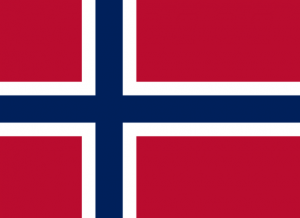Difference between revisions of "Language/Norwegian-bokmal/Vocabulary/Technical-and-scientific-language"
m (Quick edit) |
m (Quick edit) |
||
| Line 8: | Line 8: | ||
As you progress in your Norwegian Bokmål language learning journey, you may come across specialized vocabulary used in technical and scientific disciplines. Learning this type of language is essential for those who wish to communicate effectively in these fields. This lesson will provide a basic understanding of some of the most common technical and scientific vocabulary used in Norwegian Bokmål. | As you progress in your Norwegian Bokmål language learning journey, you may come across specialized vocabulary used in technical and scientific disciplines. Learning this type of language is essential for those who wish to communicate effectively in these fields. This lesson will provide a basic understanding of some of the most common technical and scientific vocabulary used in Norwegian Bokmål. | ||
<span link>After mastering this lesson, these related pages might interest you: [[Language/Norwegian-bokmal/Vocabulary/Parts-of-the-Body|Parts of the Body]] & [[Language/Norwegian-bokmal/Vocabulary/Asking-for-Directions|Asking for Directions]].</span> | |||
== Technical Language == | == Technical Language == | ||
Technical language refers to words and phrases used to describe complex and specialized topics such as engineering, science, and technology. Below is a list of some common technical vocabulary in Norwegian Bokmål: | Technical language refers to words and phrases used to describe complex and specialized topics such as engineering, science, and technology. Below is a list of some common technical vocabulary in Norwegian Bokmål: | ||
| Line 59: | Line 61: | ||
Technical and scientific language can be challenging to learn, but it is essential for those wishing to communicate effectively in these fields. Don't be discouraged if it takes time to understand these concepts, remember that practice makes perfect. Continue to learn and expand your vocabulary so you can have a deeper understanding of these interesting and important fields. | Technical and scientific language can be challenging to learn, but it is essential for those wishing to communicate effectively in these fields. Don't be discouraged if it takes time to understand these concepts, remember that practice makes perfect. Continue to learn and expand your vocabulary so you can have a deeper understanding of these interesting and important fields. | ||
<span link>Well done on mastering this lesson! Don't miss these related pages to expand your knowledge: [[Language/Norwegian-bokmal/Vocabulary/Time|Time]] & [[Language/Norwegian-bokmal/Vocabulary/Education|Education]].</span> | |||
{{#seo: | {{#seo: | ||
|title=Specialized Norwegian Bokmål vocabulary: Technical and scientific language | |title=Specialized Norwegian Bokmål vocabulary: Technical and scientific language | ||
| Line 65: | Line 69: | ||
}} | }} | ||
==Other Lessons== | |||
== | |||
* [[Language/Norwegian-bokmal/Vocabulary/Valentines-Day|Valentines Day]] | * [[Language/Norwegian-bokmal/Vocabulary/Valentines-Day|Valentines Day]] | ||
* [[Language/Norwegian-bokmal/Vocabulary/Idiomatic-Expressions|Idiomatic Expressions]] | * [[Language/Norwegian-bokmal/Vocabulary/Idiomatic-Expressions|Idiomatic Expressions]] | ||
| Line 87: | Line 83: | ||
{{Norwegian-bokmal-Page-Bottom}} | {{Norwegian-bokmal-Page-Bottom}} | ||
<span maj></span> <span gpt></span> <span model=gpt-3.5-turbo></span> | <span maj></span> <span gpt></span> <span model=gpt-3.5-turbo></span> | ||
<span links></span> | |||
Revision as of 23:03, 27 March 2023
As you progress in your Norwegian Bokmål language learning journey, you may come across specialized vocabulary used in technical and scientific disciplines. Learning this type of language is essential for those who wish to communicate effectively in these fields. This lesson will provide a basic understanding of some of the most common technical and scientific vocabulary used in Norwegian Bokmål.
After mastering this lesson, these related pages might interest you: Parts of the Body & Asking for Directions.
Technical Language
Technical language refers to words and phrases used to describe complex and specialized topics such as engineering, science, and technology. Below is a list of some common technical vocabulary in Norwegian Bokmål:
| Norwegian Bokmål | Pronunciation | English Translation |
|---|---|---|
| data | /ˈdɑːtɑ/ | data |
| programvare | /prɔgrɑmˈvɑːrə/ | software |
| maskin | /ˈmɑskɪn/ | machine |
| operativsystem | /ˈuːpərɑtiːvˌsyːstəm/ | operating system |
| koder | /ˈkuːdər/ | codes |
| programmeringsspråk | /prɔgrɑmˈrɪŋssprɔːk/ | programming language |
| protokoll | /pruˈtʊkɔl/ | protocol |
| algoritme | /ɑːlɪɡrɪtmə/ | algorithm |
In everyday conversation, technical language can be difficult to understand, even in your native language. It is important to focus on the context in which these words are used, and to ask questions if you are unsure about the meaning.
Scientific Language
Scientific language is used to describe concepts related to biology, chemistry, physics, and other specialized fields. The following is a list of common scientific vocabulary in Norwegian Bokmål:
| Norwegian Bokmål | Pronunciation | English Translation |
|---|---|---|
| biologi | /biˈʊluːɡi/ | biology |
| økologi | /økuˈloɡi/ | ecology |
| kjemi | /ˈçeːmi/ | chemistry |
| fysikk | /ˈfyːsɪk/ | physics |
| astronomi | /ɑstrɔːˈnɔmi/ | astronomy |
| geologi | /ɡeˈɔluːɡi/ | geology |
| meteorologi | /meteoroˈloɡi/ | meteorology |
Scientific language may also include specific terminology unique to a particular field. For example, a biologist may use words such as "zoology" or "botany". Similarly, a chemist may use words such as "organic chemistry" or "analytical chemistry".
Conclusion
Technical and scientific language can be challenging to learn, but it is essential for those wishing to communicate effectively in these fields. Don't be discouraged if it takes time to understand these concepts, remember that practice makes perfect. Continue to learn and expand your vocabulary so you can have a deeper understanding of these interesting and important fields.
Well done on mastering this lesson! Don't miss these related pages to expand your knowledge: Time & Education.
Other Lessons
- Valentines Day
- Idiomatic Expressions
- Food
- Engineering and technical jargon
- Hobbies and leisure activities
- Count to 10
- Legal and financial jargon
- Weather
- Vehicles
- Fruits
